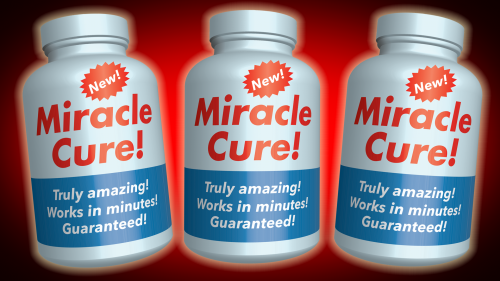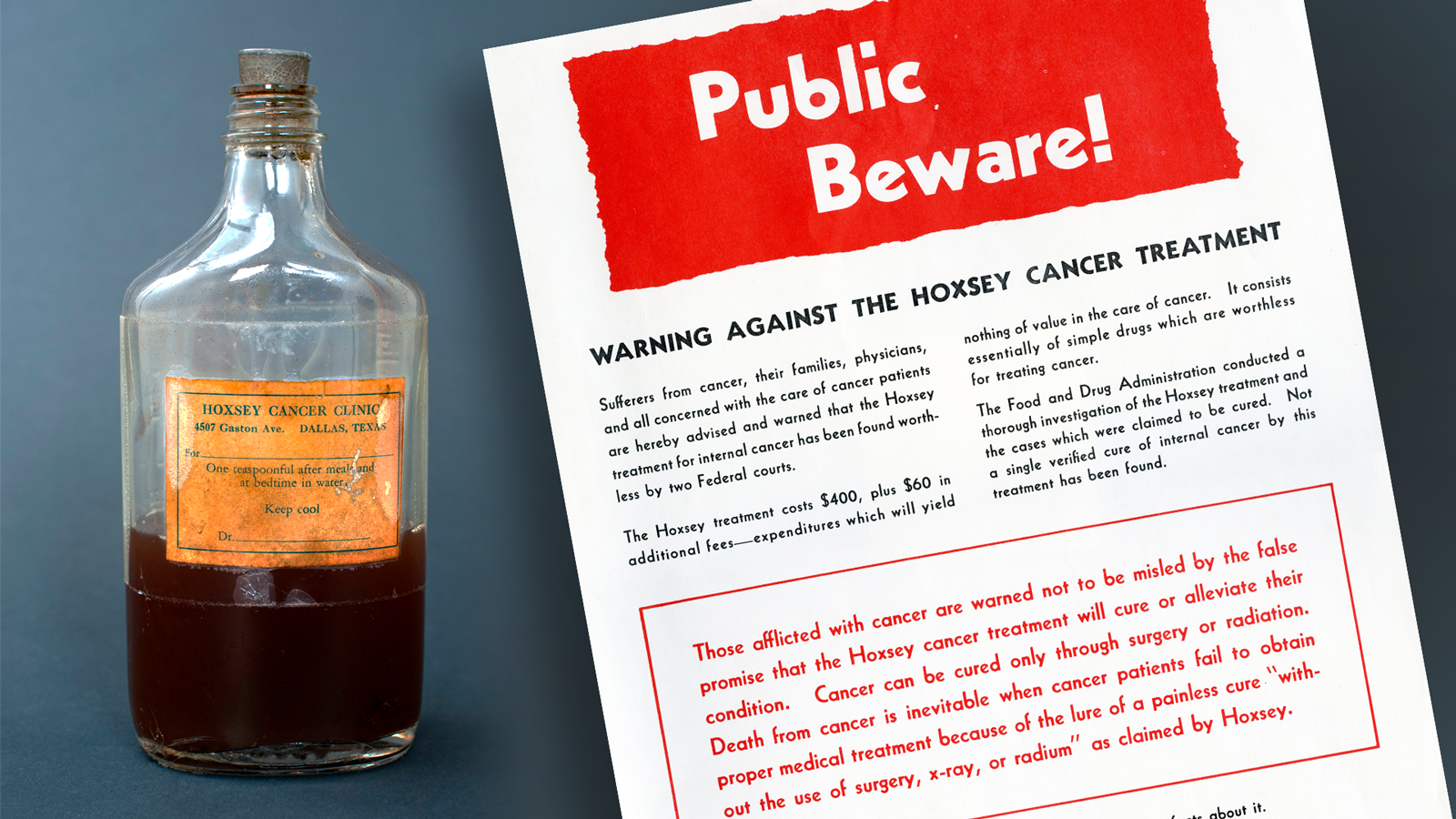Products Claiming to "Cure" Cancer Are a Cruel Deception

Learn more about the history of cancer fraud below.
Beware of products claiming to cure cancer on websites or social media platforms, such as Facebook and Instagram. According to Nicole Kornspan, M.P.H., a consumer safety officer at the U.S. Food and Drug Administration (FDA), they’re rampant these days.
“Anyone who suffers from cancer, or knows someone who does, understands the fear and desperation that can set in,” says Kornspan. “There can be a great temptation to jump at anything that appears to offer a chance for a cure.”
Legitimate medical products such as drugs and devices intended to treat cancer must gain FDA approval or clearance before they are marketed and sold. The agency’s review process helps ensure that these products are safe and effective for their intended uses.
Nevertheless, it’s always possible to find someone or some company hawking bogus cancer “treatments,” which come in many forms, including pills, capsules, powders, creams, teas, oils, and treatment kits. Frequently advertised as “natural” treatments and often falsely labeled as dietary supplements, such products may appear harmless, but may cause harm by delaying or interfering with proven, beneficial treatments. Absent FDA approval or clearance for safety, they could also contain dangerous ingredients.
That holds true for treatments intended for humans and those intended for pets. “Increasingly, bogus remedies claiming to cure cancer in cats and dogs are showing up online,” Kornspan says. “People who cannot afford to spend large sums at the animal hospital to treat cancer in their beloved dogs and cats are searching for less expensive remedies.”
The FDA urges consumers to steer clear of these potentially unsafe and unproven products and to always discuss cancer treatment options with their licensed health care provider.
FDA Takes Action
As warranted, FDA sends warning letters to companies, advising them to change or remove fraudulent claims from their websites. If the companies don’t comply, the FDA may take further legal action to prevent their products from reaching consumers.
Red Flags
While some fraudulent products claim to cure a variety of diseases and conditions, fraudulent cancer products often use a particular vocabulary, Kornspan says. Consumers should recognize certain phrases as red flags, including:
- Treats all forms of cancer
- Miraculously kills cancer cells and tumors
- Shrinks malignant tumors
- Selectively kills cancer cells
- More effective than chemotherapy
- Attacks cancer cells, leaving healthy cells intact
- Cures cancer
Moreover, whether products claim to cure cancer or another disease, there are a number of catch phrases that can tip you off that they’re bogus.
“There are legal ways for patients to access investigational drugs, for example taking part in clinical trials,” says Kornspan. Patients looking to try an experimental cancer treatment should talk to their doctor about treatment options. For more information, visit the National Cancer Institute Clinical Trials website.
Cancer Fraud: Nothing New
Harry M. Hoxsey had no medical training yet made millions hawking quack cancer “cures” to desperate patients for more than three decades, until FDA was able to help remove the products from the market in the 1950s. Hoxsey’s herb extract cancer treatment had no scientific basis, and while the legal case against Hoxsey unfolded, to help warn consumers, in 1957 FDA issued this poster and placed it in post offices around the country. Learn more about Hoxsey's fraudulent cancer treatment and get these high-resolution photos on FDA's Flickr photostream.


